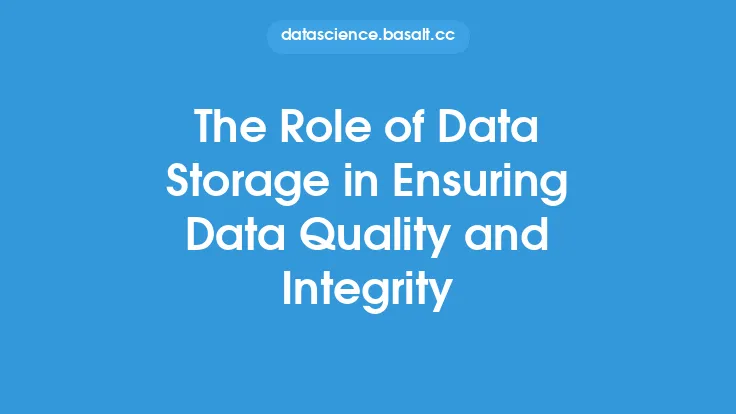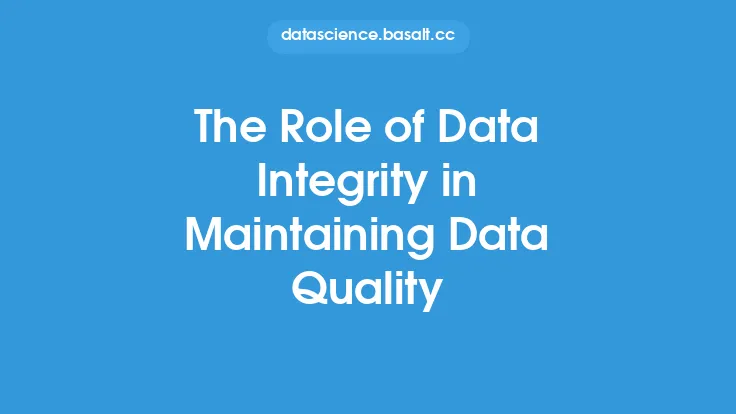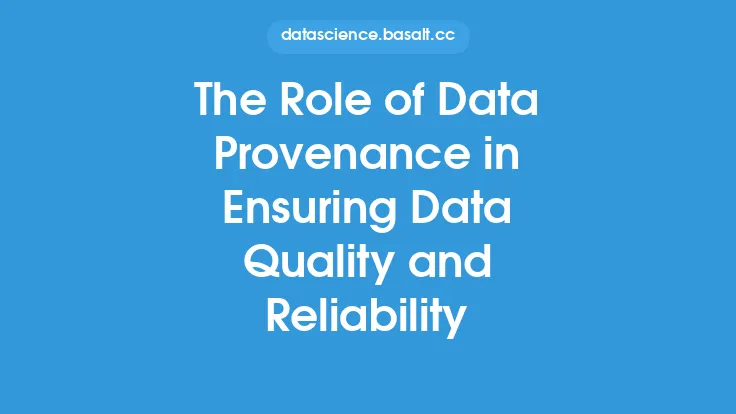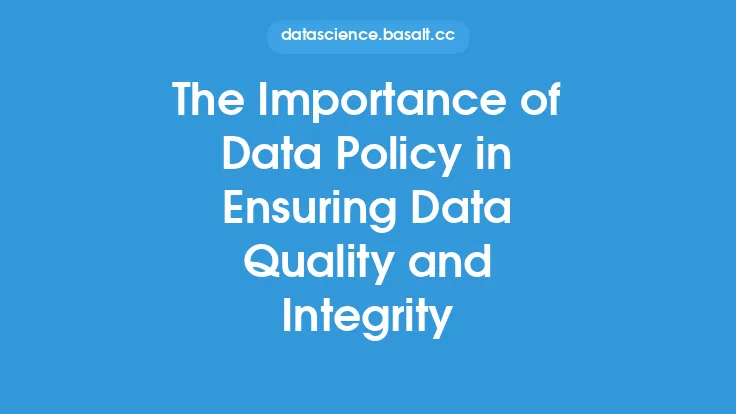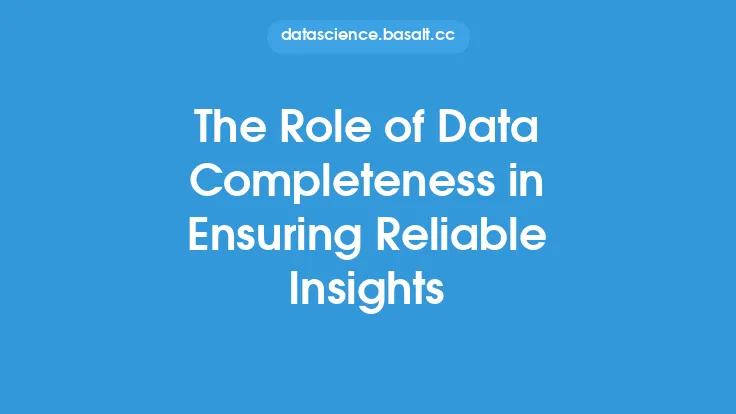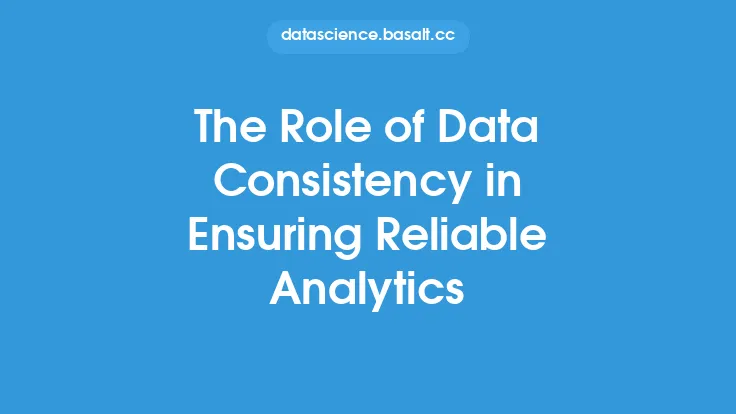Data management plays a crucial role in ensuring the integrity of an organization's data assets. As the volume, velocity, and variety of data continue to grow, it is becoming increasingly important for organizations to have a robust data management system in place to ensure that their data is accurate, complete, and consistent. Data integrity is the foundation of any successful data management strategy, and it is essential to understand the concepts, principles, and best practices that underpin it.
Introduction to Data Integrity
Data integrity refers to the accuracy, completeness, and consistency of data. It is a critical aspect of data management, as it ensures that data is reliable, trustworthy, and fit for purpose. Data integrity is not just about ensuring that data is free from errors, but also about ensuring that it is consistent across different systems, applications, and databases. There are several types of data integrity, including entity integrity, referential integrity, and domain integrity. Entity integrity ensures that each row in a table is unique, referential integrity ensures that relationships between tables are maintained, and domain integrity ensures that data conforms to a specific format or range.
Data Management Principles for Ensuring Data Integrity
There are several data management principles that are essential for ensuring data integrity. These include data standardization, data validation, data normalization, and data quality control. Data standardization ensures that data is collected and stored in a consistent format, data validation ensures that data is accurate and complete, data normalization ensures that data is organized in a way that minimizes data redundancy and dependency, and data quality control ensures that data is continuously monitored and improved. Additionally, data management principles such as data security, data backup and recovery, and data archiving are also essential for ensuring data integrity.
Data Integrity Constraints
Data integrity constraints are rules that are used to ensure the accuracy and consistency of data. There are several types of data integrity constraints, including primary key constraints, foreign key constraints, unique constraints, and check constraints. Primary key constraints ensure that each row in a table is unique, foreign key constraints ensure that relationships between tables are maintained, unique constraints ensure that each value in a column is unique, and check constraints ensure that data conforms to a specific condition or rule. Data integrity constraints can be implemented at the database level, application level, or at the data entry level.
Data Quality Metrics for Measuring Data Integrity
Data quality metrics are used to measure the accuracy, completeness, and consistency of data. There are several data quality metrics that can be used to measure data integrity, including data accuracy, data completeness, data consistency, and data timeliness. Data accuracy metrics measure the degree to which data is free from errors, data completeness metrics measure the degree to which data is comprehensive, data consistency metrics measure the degree to which data is consistent across different systems and applications, and data timeliness metrics measure the degree to which data is up-to-date. Additionally, data quality metrics such as data redundancy, data dependency, and data relevance can also be used to measure data integrity.
Data Management Tools and Technologies for Ensuring Data Integrity
There are several data management tools and technologies that can be used to ensure data integrity. These include data validation tools, data quality tools, data integration tools, and data governance tools. Data validation tools ensure that data is accurate and complete, data quality tools ensure that data is consistent and reliable, data integration tools ensure that data is integrated from multiple sources, and data governance tools ensure that data is managed and governed in a consistent and transparent way. Additionally, technologies such as data warehousing, business intelligence, and big data analytics can also be used to ensure data integrity.
Best Practices for Ensuring Data Integrity
There are several best practices that can be used to ensure data integrity. These include implementing data validation and data quality checks, using data integrity constraints, implementing data standardization and data normalization, and continuously monitoring and improving data quality. Additionally, best practices such as data security, data backup and recovery, and data archiving can also be used to ensure data integrity. It is also essential to have a robust data governance framework in place, which includes data policies, data procedures, and data standards. Furthermore, it is essential to have a data management strategy that is aligned with the organization's overall business strategy and goals.
Conclusion
In conclusion, data management plays a critical role in ensuring the integrity of an organization's data assets. Data integrity is the foundation of any successful data management strategy, and it is essential to understand the concepts, principles, and best practices that underpin it. By implementing data management principles, data integrity constraints, and data quality metrics, organizations can ensure that their data is accurate, complete, and consistent. Additionally, by using data management tools and technologies, and following best practices, organizations can ensure that their data is reliable, trustworthy, and fit for purpose. Ultimately, ensuring data integrity is essential for making informed business decisions, improving business outcomes, and achieving business success.
